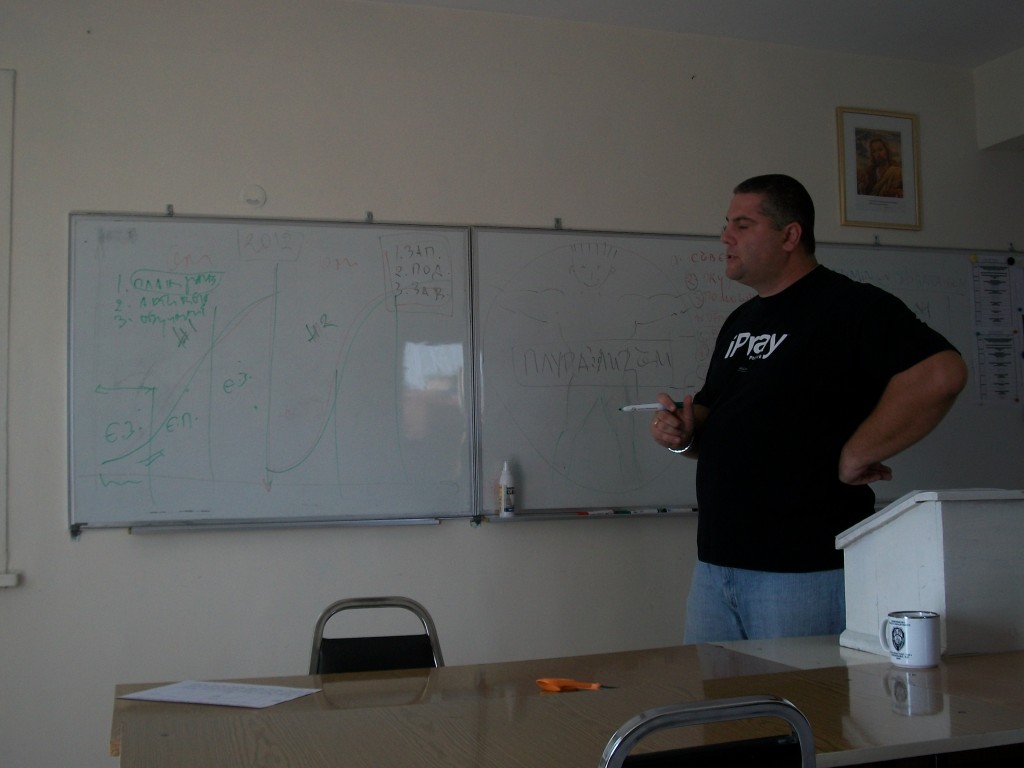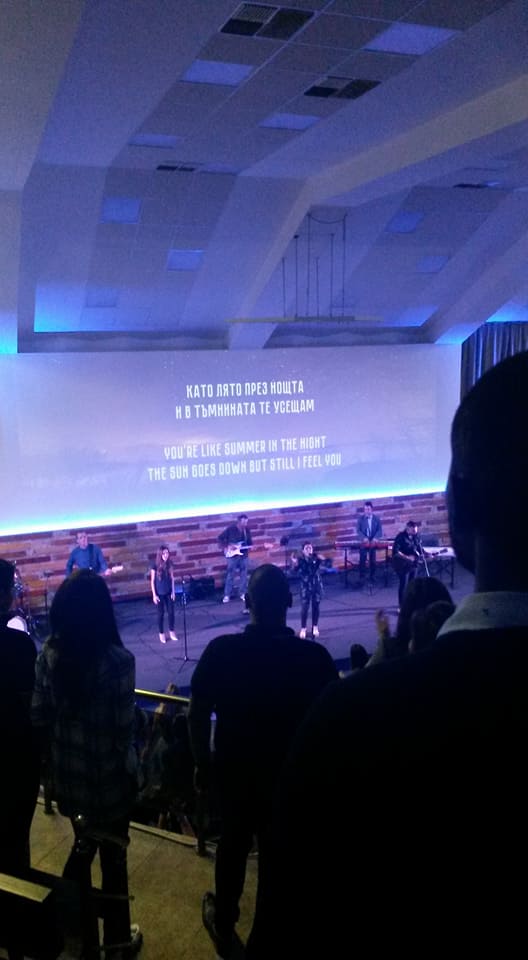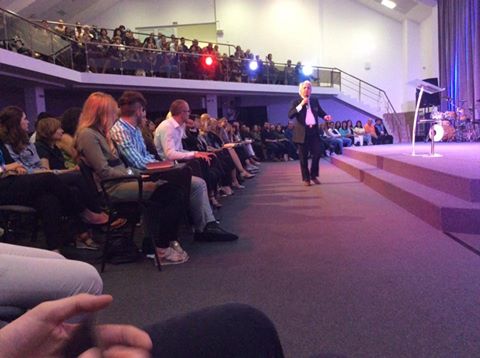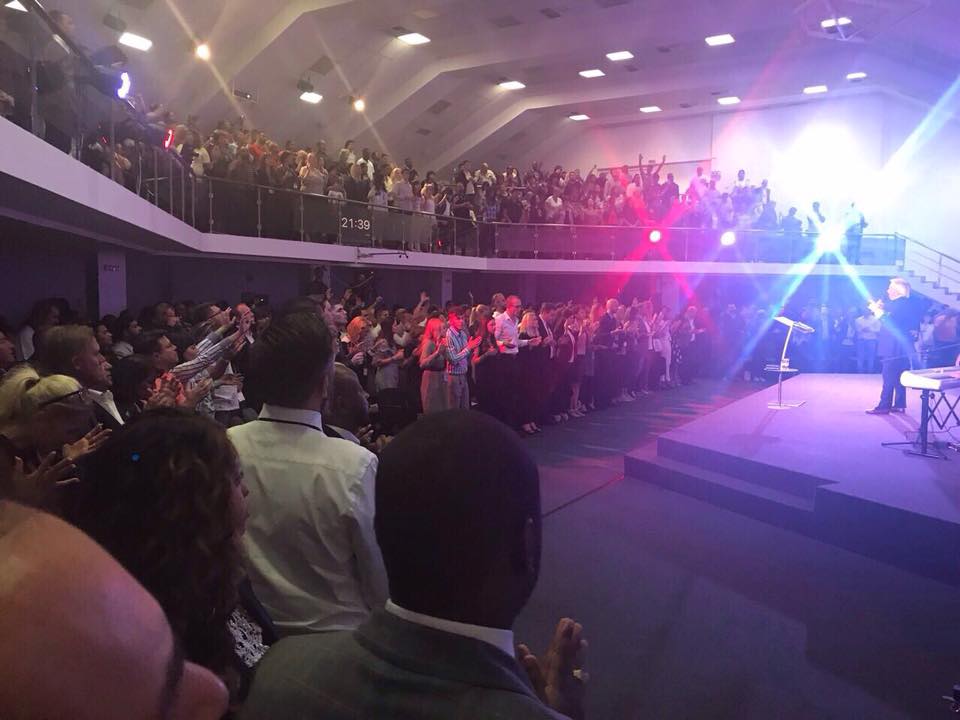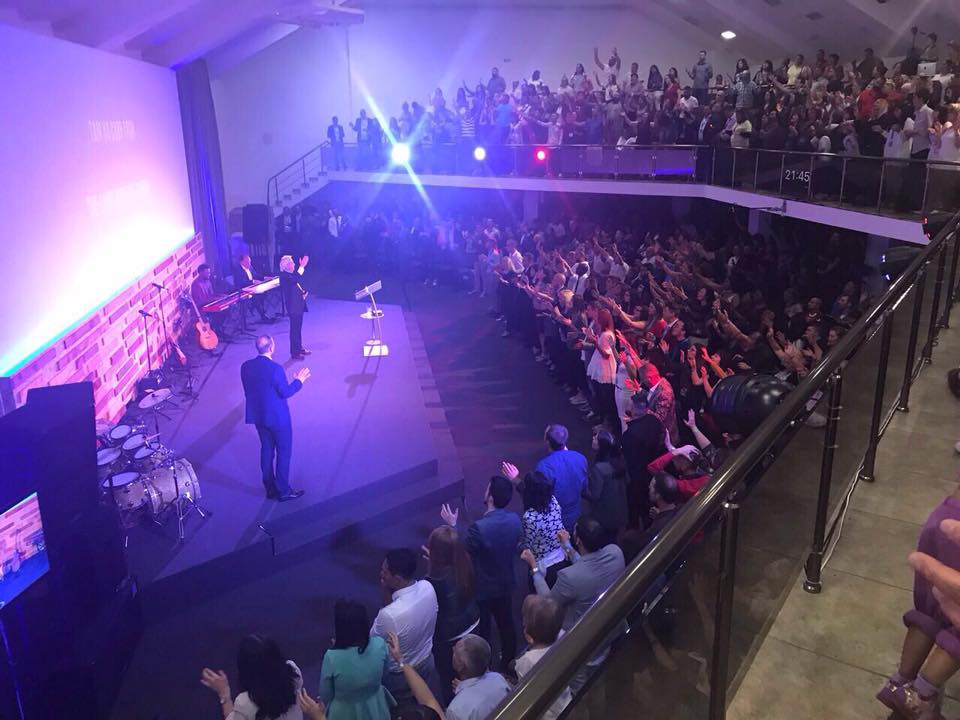Identity and diversity: The Future of Europe
This panel will bring together European political foundations, civil society representatives, academics and political actors. ENoP’s long-standing experience as a bridge-builder between civil society and political actors will provide for an enriching discussion, representing various standpoints and visions on a stronger and more integrated Europe.
As Europe marks the 60th anniversary of the Treaty of Rome, it is time for the European Union to address its major challenges and shape a common vision for its future. Following Juncker’s proposal for a ‘’multi-speed’’ Europe after Brexit and the conclusions of the Rome summit, this interactive session aims at contributing to the debate on Europe’s future. Our speakers, from various EU countries and backgrounds, would highlight the main challenges that they see ahead of the EU, while exploring different solutions as to how to contribute to a deepened integration, while enhancing political, social and economic ties.
Moderation: Arnold Kammel – Director of the Austrian Institute for European and Security Policy and Programme Director for International Relations of the Political Academy PolAk – Austria, European Network of Political Foundations (ENoP), Austria
Speakers:
Antonis Klapsis – Adjunct Lecturer at Neapolis University Pafos – Cyprus, European Network of Political Foundations (ENoP), Greece
Panayiotis Kakolyris – Journalist and Social Media Expert, European Network of Political Foundations (ENoP), Greece
Nikolay Paunov – Chairperson, Liberal Politological Institute (LPI), Bulgaria
Doris Pack – President, EPP Women, Germany
Police removed barricades at Turkish-Bulgarian border
Nationalists had tried to keep Bulgarian-Turkish dual citizens from voting in Bulgaria’s upcoming parliamentary election. Meanwhile, Presidents Erdogan and Radev traded barbs.
Amid growing tension between Sofia and Ankara, Bulgarian police on Friday removed barricades protesters had erected at at least two border crossings with Turkey. Bulgarian nationalists had attempted to prevent Bulgarian-Turkish dual citizens from entering the country to vote in Sunday’s parliamentary elections. Dozens of protesters carried banners bearing nationalist slogans such “No to Turkish interference” at Kapitan Andreevo, the main checkpoint between the two countries. Similar blockades had been erected earlier in the week, but protests quickly petered out.
Turks are an influential minority
Tension has been growing between neighbors Bulgaria and Turkey as of late over Ankara’s open support for a new party representing Bulgaria’s Turkish minority. Turks make up roughly 10 percent of Bulgaria’s 7.25 million inhabitants. There are least another 200,000 ethnic Turks with Bulgarian passports who live in Turkey, Turkish-Bulgarians have traditionally supported for centrist Movement for Rights and Freedoms (MDL). But the party’s increasingly critical stance towards Turkish President Recep Tayyip Erdogan and the Turkish government caused a pro-Erdogan splinter group to form last year. Turkish officials have openly backed this new party, Dost, leading to tension with Bulgaria. The Sofia administration has objected to what it sees as Turkish interference in Bulgarian politics. Last weekend, Bulgaria, a member of the European Union, recalled its envoy from Ankara and summoned the Turkish ambassador in Sofia for talks.
Erdogan vs. Radev
In the latest angry exchange over the issue, Erdogan said it was “unacceptable” that Sofia was putting “serious pressure” on Turks in Bulgaria ahead of the vote. Bulgarian President Rumen Radev fired back on Thursday, saying that “Bulgaria neither gives nor accepts lessons in democracy, especially from countries that do not respect the rule of law.” The spat has boosted support for Bulgaria’s nationalists. Recent polls project that the United Patriots coalition will come third in the election on Sunday behind the Socialists and the center-right. Bulgaria had called for early parliamentary elections after Prime Minister Boiko Borisov of the center-right GERB resigned in November, following his party’s loss in presidential polls.
The Turkish-Bulgarian strife comes amid deteriorating relations between Ankara and several EU member states ahead of a constitutional referendum in Turkey on April 16, which some have criticized for granting the president too much power. Several EU countries – including Germany – have decided not to allow campaign events with members of the Turkish administration, which has enraged Erdogan.
Bibliata.com celebrates 20 years in ministry by reading through the whole New Testament in one day
After a week of revival services in Rousse, on Saturday we held a public reading of the New Testament in about nine hours with the whole congregation. We recorded and published the video of the reading as an encouragement for the rest of the churches.
All Bulgarian children must go to school
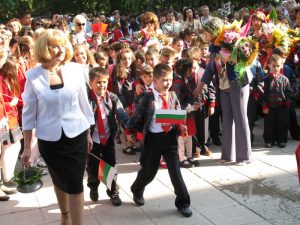 All Bulgarian children must go to school! A new legal measure called “Highway to Knowledge” calls for police enforcement over children who do not attend public school and heavy fines on their parents.
All Bulgarian children must go to school! A new legal measure called “Highway to Knowledge” calls for police enforcement over children who do not attend public school and heavy fines on their parents.
All children who do not go to school by October 20th will be brought to school with the help of the police. Five skipped class periods will cost a $100 fine for the parents (min. monthly salary in Bulgaria is about $300)
By August 31st of the school year, each school will turn in lists of students attending along with addresses and social security numbers as part of their annual school registration. If a student does not start attending school by October 20th of the school year, a “social assistance team” will be provided to bring the student in for class. This “social assistance team” will have a policeman, a pedagogy and a counselor. At least one such team must be formed in each city or village that has at least one school. The teams will tour the homes of the students not in attendance, talk to parents and explain what the sanctions are if the children are not enrolled in a school or kindergarten. If the team does not find the child at their current address, names and data will be posted by the Ministry of Interior. These teams will also be responsible for creating an individual plan for each child and what kind of help they need to remain in the education system.
By September 30th, school principals must enter the names and the data of all students enrolled in an electronic database. Each month, the system will generate a report with all absentees and appropriate action will be taken. Pre-schoolers who have not attended school for more than three days will also be reported. The parents of these children will be fined under the School and Pre-school Education Act.
Pentecostal Education in Bulgaria a Decade Later
This article was originally authored in 2008 and now addresses issue that have been ongoing for over 20 years
The missionary strategy of Protestant denominations toward Bulgaria within the 19th century effectively included evangelistic, publishing and educational outreaches. The educational paradigms, which the western missionaries introduced, were soon adopted by the Bulgarian people, quickly realized as progressive and successfully implemented in both religious and secular Bulgarian schools. These trends continued in the next several decades, educating Bulgarian youth and producing the first generation of Bulgarian leaders who took their rightful place in political, economical, social and religious structures in the Bulgarian lands.
Unfortunately, when the Communist Revolution took place in Bulgaria, all religious schools, with the exception of the Eastern Orthodox Seminary in Sofia, were closed down and religious education was outlawed. For the next half century, Bulgarian evangelical ministers were destined to do ministry without any former religious education.
When the Berlin Wall fell in 1989, the tension for religious education reached its culmination and a number of religious schools were quickly established across Bulgaria. The instruction methods used ranged from Bible study home groups to Bible colleges all to fulfill the niche for religious education. Two important milestones must be mentioned here, and they are the opening of the Logos Bible Academy in the Danube town of Russe and the starting of a long distance program by ORA International.
Naturally, the general trend of Bulgaria’s post communist governments to control these educational institutions resulted in the registration of a religious institute under the Directorate of Religious Affairs, a government agency formed to register, manage and supervise the activity of religious formation on the territory of Bulgaria. It was in this context that the Bulgarian Evangelical Theological Institute (BETI) was formed and registered in the capital Sofia. It included five departments (often called faculties), representing Bulgarian evangelical denominations with a predominant focus on the Pentecostal wing.
The Theological College in Stara Zagora, often mistakenly called a Theological Seminary, was established in 1998 as one of these departments to represent the Bulgarian Church of God. Because of current developments within the Bulgarian Church of God, the department was started in the city of Stara Zagora, located some four hours east of the capital and became the only of the faculties not located in Sofia. Naturally, its location, staff, affiliation and purpose created a sense of independence, both in its theology and structure.
With the acceptance of the new Act of Confessions in 2002, the Bulgarian government employed a more drastic approach toward all religious institutions not fitting the standard denominational profile. Since BETI was among them, the government initiated the process of the Institute’s accreditation with the Ministry of Education. Five years later, the government is yet to grant the accreditation. It was not until the publication of this article in March, 2008 that the Bulgarian Government moved toward finalizing the long-awaited accreditation of BETI.
Meanwhile the Institute’s management is facing a tri-dimensional dilemma which includes economic, cultural and leadership tensions. Some of them have not been resolved due to the lack of recourses; others have not been resolved due to the lack of essential prerequisites in the long-term educational strategy of the school. The following is a list of the challenges, which must be resolved immediately in order for the Institute to continue to operate under the said government accreditation:
1. The school’s baccalaureate program, structured primarily after 20th century American Bible college model, is practically incompatible with the requirements of the Bulgarian Ministry of Education. The dilemma of changing the program to meet the accreditation requirements or to retain the school’s evangelical identity is yet to be resolved on part of BETI as a whole, as well as its theological departments individually.
2. Three masters programs that were to focus on the subjects of Christian counseling, chaplaincy ministry and missions were secured from the Bulgarian government several years ago. However, because of the lack of students and experts on the said topics, only one of them, the master’s program in counseling, has been partially developed. Today, it remains in its initial phase as a distance-learning program, while the other two programs are virtually untouched.
3. It has taken BETI over a decade to comply with the country’s requirements for higher education. In this process, the school has not facilitated the opportunity for religious master’s programs thus missing its mission to become a higher education authority in religious studies.
4. The resistance toward the evangelical movement and more specifically its presence within the educational process of Bulgarian adolescents has resulted in continuous protests on part of the Bulgarian community. They have been followed by restrictions from the government, which has forced the Institute at the periphery of the educational process. Two waves of attacks against Bulgarian evangelicals in 1990-1993, 2002-2004 and the current trend of the government to establish mandatory religious classes for children ages seven to twelve has contributed to this alienation and has forced the inability of evangelical education to find and establish its place within the Bulgaria community. Much of this has to do with the lack of an adequate placement strategy for graduates upon the completion of the college’s program.
5. Furthermore, scholarships for individual students and sponsorship for the colleges of the Institute has weekend since 9/11 creating an economical dilemma with which the Institute is still struggling. The financial crisis has brought about the rethinking of the economic strategy of the Institute, its dependency on religious support sources and its financial self-sufficiency.
6. Additionally, a number of Roma/Gipsy communities have received substantial educational grants from the European Union upon Bulgaria’s official membership. This has taken a great number of the Roma/Gipsy students within the Institute in a different direction.
7. Immigration has also taken its toll on the Institute’s graduates, as many of them have seized the opportunity to continue their training in religious educational institutions abroad, while other have simple forgone their higher religious education in the struggle for personal survival, both groups never to return and practice in Bulgaria.
8. It is also unfortunate, that most of the professionally trained Bulgarians who have graduated with a higher degree in religious studies from foreign colleges and universities, have been unable to find their place within the structure of the BETI and have been employed in educational institutions, religious centers, ministries and missions which often have to do very little with Bulgaria.
9. The denominational affiliation of each of the departments, has contributed to the dilemma of structural incompatibility with the leadership and vision differences between the denominations that are affiliated with the Institute. The recent crises in several of the member dominations have added to the escalation of the above dilemmas and the incapability for the resolution from a denominational standpoint.
10. Naturally, the well-educated graduates have chosen not to occupy themselves with denominational politics both to avoid confrontation and to express their disagreement. This dynamic has been partially ignored by leadership remaining from the period of the underground church when religious education was virtually nonexistent and lacking a complete realization of the power of education. This unnoticed trend, however, endangers Bulgarian Evangelism creating a lack of continuity within the leadership and preparing the context for the emerging leadership crises.
As an educational institution of the Bulgarian Church of God and a member of the Bulgarian Evangelical Theological Institute, the Theological College in Stara Zagora has experienced all of the above dilemmas and more. Its physical distance from the capital Sofia has jeopardized its accreditation with Bulgaria’s Ministry of Education, the latest guidelines of which have constituted that a school department cannot be more than 25 miles away from its main office. Since Stara Zagora is almost 200 miles away, the Church of God Bible College has been forced to find a suitable alternative. One logical solution may be to move the school or parts of the school to a Sofia location.
However, the Stara Zagora Theological College has had very little if any representation in the capital for its decade of existence. A move to Sofia would propose a number of new problems such as the relocation of teachers and a forced split of focus between two campuses. Another immediate challenge would be the development of a long-term financial strategy to meet a budget, which in the capital would be three-four times the cost of the same operation in the city Stara Zagora. And finally, a successful strategy for establishing a new level of cooperation with the rest of the Institute’s departments, which have operated in the capital Sofia for over a decade is a must, before a successful educational program can be initiated by the Bulgarian Theological College at the new location.
Benny Hinn in the Church of God Ministry Center in Bulgaria
Bulgarian Churches in Germany (2017 Report)
#1 Baptistenkirche, Müller Straße 14 Berlin
#2 Zollhofstrasse 4, 67061 Ludwigshafen
#3 Stadtmission Waldsrt. 36, Offenbach am Main
#4 Lotztstr. 54, 65934 Frankfurt
#5 Kaiser Wilhelm Str. 255, 47169 Duisburg
Duisburg 47169 „Die Brücke“, Johannismarkt 7
#6 Hauptstrasse 4 Hilgert 56206
#7 Bremen Walle Heerstr 197
#8 Hofäckerstrasse 3 71732 Tamm (near Stuttgart)
#9 30457 Reichweinweg 2, Hannover
#10 Adolph Kolping Platz 11 – Kaiserslautern 67655
#11 Franz Georg str 36, Trier 54290
#12 Kirschstr 48a, Montabaur 56410
#13 Emilienplatz 16, Hagen 58097
#14 Kesselheimer weg 16, Koblenz 56070
#15 Langestraße 226, Hamm
#16 Emserstr. 57, Wiesbaden 65195
#17 Goethering 9-11, Osnabrück 49074
#18 Lichtinsel Veringstr. 47, Hamburg 21107
#19 Athener Ring 34, Kulturbücke 50765
READ MORE:


